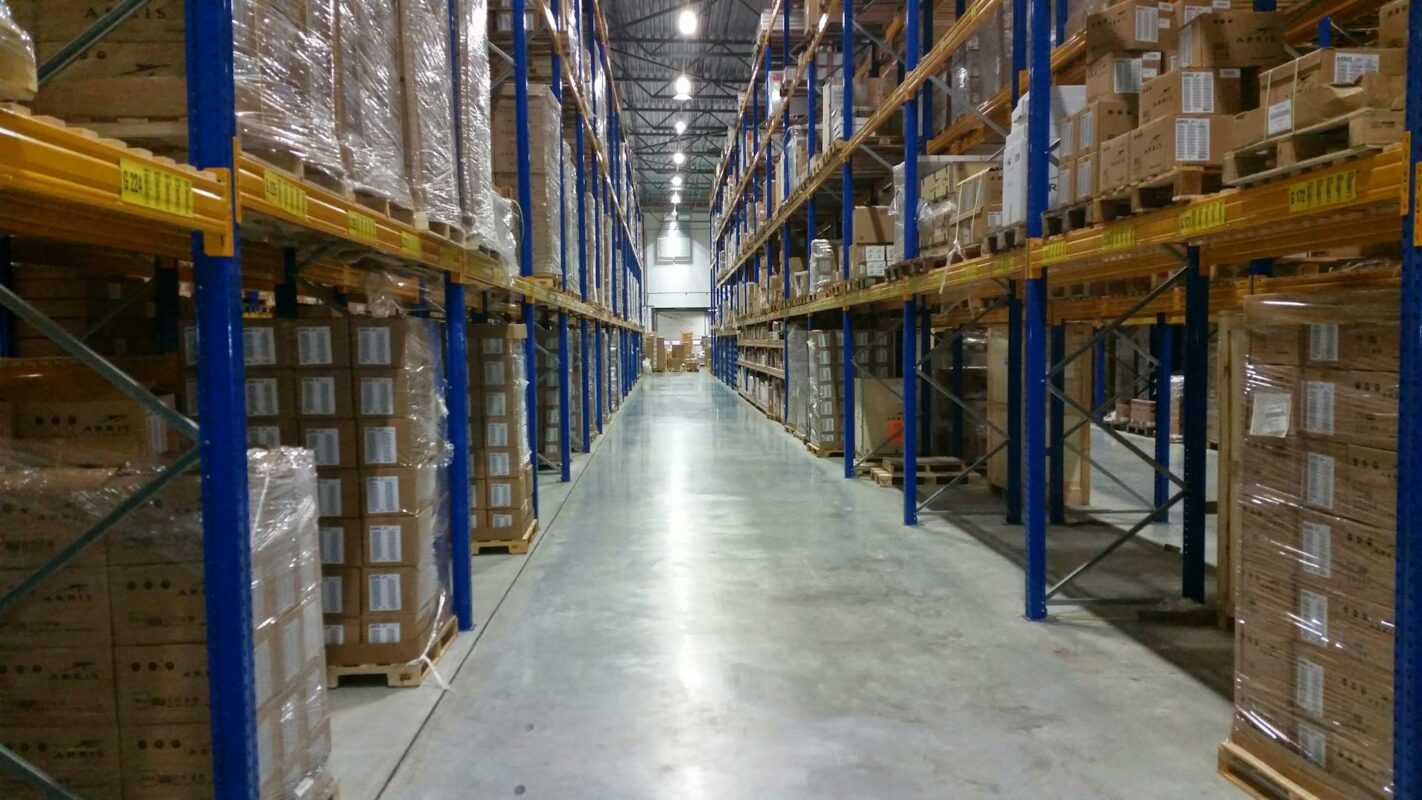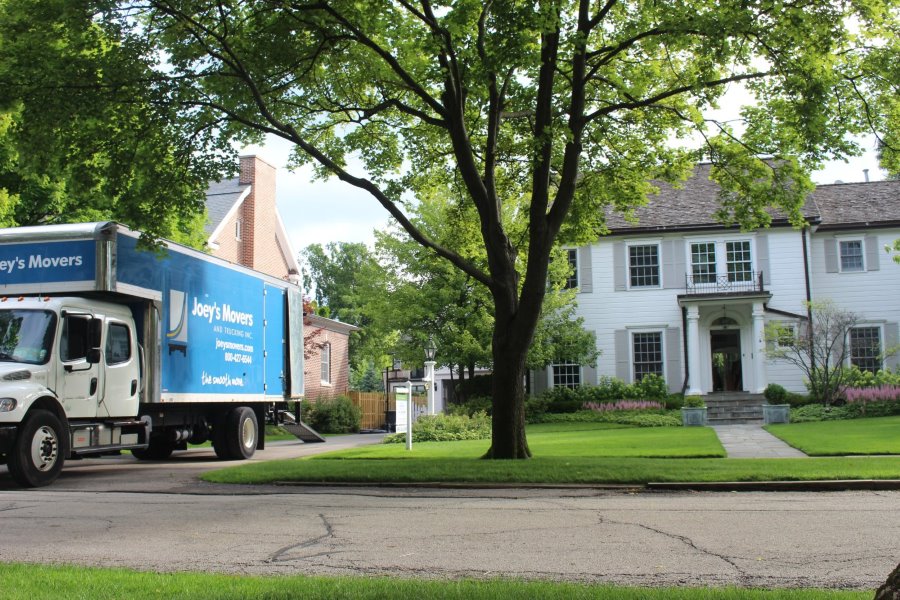Choosing the right secure storage solution is critical for everyone, whether you are storing tools, inventory, staging furniture, or household belongings. Unfortunately, many people rely on shared warehouse storage without realizing that there are significant risks, like unauthorized access, inadequate climate control, and limited liability protections.
This guide will help:
- Break down the hidden dangers of shared storage facilities
- Compare warehouse storage and self-storage
- Outline what to look for in a secure unit
- Strategize how to protect your valuables, avoid common insurance pitfalls, and select the best storage solutions for your needs
By the time you finish reading, you will be able to make a fully informed decision based on your needs.
Understanding Shared Warehouse Storage
Shared warehouse storage is where multiple clients place their belongings in a shared space within a larger warehouse. It typically has open areas, pallets, or communal crates. While this can reduce costs through multiple people sharing the cost of the space, it also means the space is not divided into private, locked units. You are working on an honor system with the staff, delivery services, and everyone who rents that space with you.
Businesses and homeowners are sometimes drawn to shared storage because it seems more efficient and budget-friendly. However, the convenience of shared access can quickly become a liability if issues like theft, misplacement, or accidental damage occur.
Ensure secure storage solutions at shared facilities have metal lockers. Joey’s Movers provides this. Call us today at (847) 674-7779 to learn more or get a free online quote.
Security Risks Associated with Shared Storage
Shared warehouse storage can seem practical on paper, but it introduces real security concerns that many clients don’t discover until it’s too late. No matter what you are storing, shared spaces expose your assets to avoidable risks. Many users underestimate the risks of shared storage facilities, including lack of surveillance, shared access, and limited legal protections.
Theft and Unauthorized Access
One of the most common and costly issues in shared storage is theft. Without individual, locked units, it’s difficult to control who has access to your items. Employees, third-party vendors, and even other customers may have access to the same warehouse floor. If the shared space has poor security and logistics, your items could be stolen, misplaced, or swapped out with little legal recourse. Theft in shared storage spaces is more common than reported and often difficult to recover due to unclear responsibility and limited liability clauses.
For example, an employee at an Amazon Bolton warehouse used his access to steal 46 iPhones from third-party companies using the warehouse and platform for their e-commerce needs. The stolen phones were valued at £64,532 or $84,562.73 at the time this article was published, and his job allowed him to access the storage with little to no oversight.
According to industry reports, incidents of theft and warehouse crimes tend to be underreported. In many cases, the facility’s liability is also limited by the terms of the contract, so you may not be fully compensated against losses due to theft.
Accidental or Intentional Damage
In a communal setup, stored items are often stacked or grouped together with little separation. This creates opportunities for damage from mishandling, shifting inventory, or environmental hazards.
For example, staging furniture may get scratched or soiled when it is shifted to make room for someone else’s inventory, or construction equipment may get moved and damaged during someone else’s delivery. In some cases, someone else’s carelessness with their inventory could cause a fire, flooding, or other disaster that affects your stored goods. Since your belongings are in a shared environment, they’re vulnerable to conditions you can’t monitor or control.
Climate and Environmental Risks
Poor ventilation, pest control issues, or lack of climate regulation can affect sensitive materials stored in shared facilities. Items like electronics, wood furniture, documents, or artwork can suffer irreversible damage if exposed to high humidity, temperature swings, or pests.
These climate-related threats are especially common if the warehouse isn’t designed for long-term storage or if maintenance is inconsistent.
Insurance Gaps
Many people assume their stored items are fully insured, but that’s rarely the case in shared facilities. Most warehouse contracts include strict limitations on liability, and some don’t cover theft or water damage at all.
When basic coverage is offered, it often only applies if the facility itself is proven to be negligent. This can be challenging to prove when multiple companies and delivery services pass through the same space. If you’re counting on insurance to replace lost or damaged goods, you may be disappointed.
The Benefits of Individual Storage Lockers
Individual storage lockers offer a much higher level of security and control than shared warehouse spaces. These private, locked units provide a dedicated, secure environment where only you or someone you authorize can access your belongings. This setup significantly reduces the risk of theft, damage, and liability issues. When safety, privacy, and peace of mind matter most, secure storage solutions with locked, monitored access give you full control over your space.
Enhanced Security
The most immediate benefit of individual lockers is restricted access. Each unit is secured with a personal lock or digital entry system, so no one can enter that space without your permission. Many facilities offering individual spaces also include 24/7 surveillance, motion-activated alarms, and limited on-site access hours to enhance overall security. These systems work together to ensure that your belongings are protected around the clock.
Privacy and Confidentiality
In shared environments, your goods might sit in open crates or shared aisles—creating privacy concerns and increasing exposure to risk. Private storage ensures that sensitive documents, valuable staging materials, fine art, or your family’s belongings are not visible or accessible to anyone else. You control what’s stored, how it’s organized, and who sees it.
Reduced Risk of Damage
Unlike shared spaces, individual storage units eliminate the chance of accidental damage by others. Your items are stored in a fully enclosed space where they won’t be shifted, bumped, or exposed to potential contaminants from other tenants’ belongings. This level of protection can prevent costly replacements.
Better Climate Control Options
Facilities that offer individual storage often provide climate-controlled units that adjust for long-term, special handling, or seasonal climates. These units maintain consistent temperature and humidity levels to prevent mold, warping, rust, and other damage caused by environmental conditions. This is especially important in regions like Chicago, where fluctuating humidity levels and temperature swings are common.
Clearer Insurance Coverage
Storing items in a private, locked unit can also simplify insurance coverage. Many insurance providers are more willing to honor claims when items are kept in individually secured spaces with controlled access. Because there’s a clear boundary of liability and less chance of third-party handling, coverage terms tend to be more favorable and easier to prove in the event of a loss.
Peace of Mind That Pays Off
The most significant advantage of using an individual storage unit is the confidence that your belongings are secure, accessible only to you, and protected from both external and environmental threats. Whether you’re between job sites, staging homes, managing a business move, or simply need temporary storage solutions in Chicago, the right storage environment helps you stay organized, avoid delays, and focus on what matters most. For realtors managing staging items, seasonal décor, or high-value furniture, choosing the best storage solutions for realtors can streamline showings and protect your investment.
Choosing the Right Storage Solution in Chicago
Not all storage options are created equal when it comes to protecting your assets. In a busy metro area like Chicago, the decision comes down to one key factor: security. When comparing warehouse storage vs self storage, understanding access, climate control, and accountability makes a major difference in long-term protection.
Secure vs. Shared Storage
Open warehouse environments may appear professional, but they rarely provide true protection. Without private units, your belongings are left vulnerable to unauthorized access, accidental damage, and unclear liability.
Joey’s Movers takes a secure storage approach. We offer private, locked storage units to ensure your belongings are protected at all times. You control who has access. Each unit is monitored with 24/7 video surveillance and secured with individual locks, so you don’t have to worry about theft or misplacement.
What to Look For in a Secure Storage Facility
When you are comparing providers, make sure your storage solution includes these features:
- Individually locked units. Avoid any facility that relies on open-floor storage or communal access. Choose units that only you can open.
- Surveillance and monitoring. Look for 24/7 video surveillance, alarm systems, and digital access logs that track every entry and exit.
- Climate control. Chicago’s climate can be unpredictable. A temperature- and humidity-controlled environment is key for protecting electronics, wood, upholstery, fine art, or aging heirlooms.
- Limited access. Facilities that restrict who can enter are far safer than those that allow anyone to walk in.
- Professional oversight. A moving company that manages its own storage facilities can offer greater accountability and protection than third-party warehouses with rotating staff or outsourced oversight.
Key Questions to Ask Before You Store
Knowing how to protect valuables in storage starts with asking the right questions before you commit to a facility. Before selecting a storage provider, ask the following:
- Are my items stored in a private, locked unit or a shared space?
- Who will have access to my belongings?
- Is the facility monitored 24/7? What kind of surveillance is in place?
- Is there climate control? What conditions are maintained year-round?
- Does your insurance policy cover theft, water damage, and pest exposure?
Why Local Matters in Chicago
Local storage providers with a strong reputation in Chicago often understand the specific risks tied to the city, like variable weather, urban theft trends, building access limitations, and seasonal traffic that can delay logistics. Local, secure storage for contractors is especially important to protect valuable tools, materials, and time-sensitive equipment from damage or theft.
Whether you’re a business owner comparing warehouse storage vs. self-storage or a renter in need of temporary storage solutions in Chicago, prioritize security, transparency, and professional handling to ensure your belongings stay safe.
Final Recommendations
Shared storage may seem affordable, but the risks of theft, damage, and unclear access often lead to unexpected losses. Secure storage is essential to protect your time, budget, and peace of mind.
Whether you’re a contractor, realtor, or homeowner, choosing secure storage solutions with locked, climate-controlled units and 24/7 monitoring ensures your belongings stay safe. Joey’s Movers provides secure storage options with our commercial, residential, and specialty moving services. We can even pack everything up for you and move it straight to your secure unit!
Call us at (847) 674-7779 or get a free online quote now. Your belongings deserve only the best.
Photo by Handi Boyz LLC



